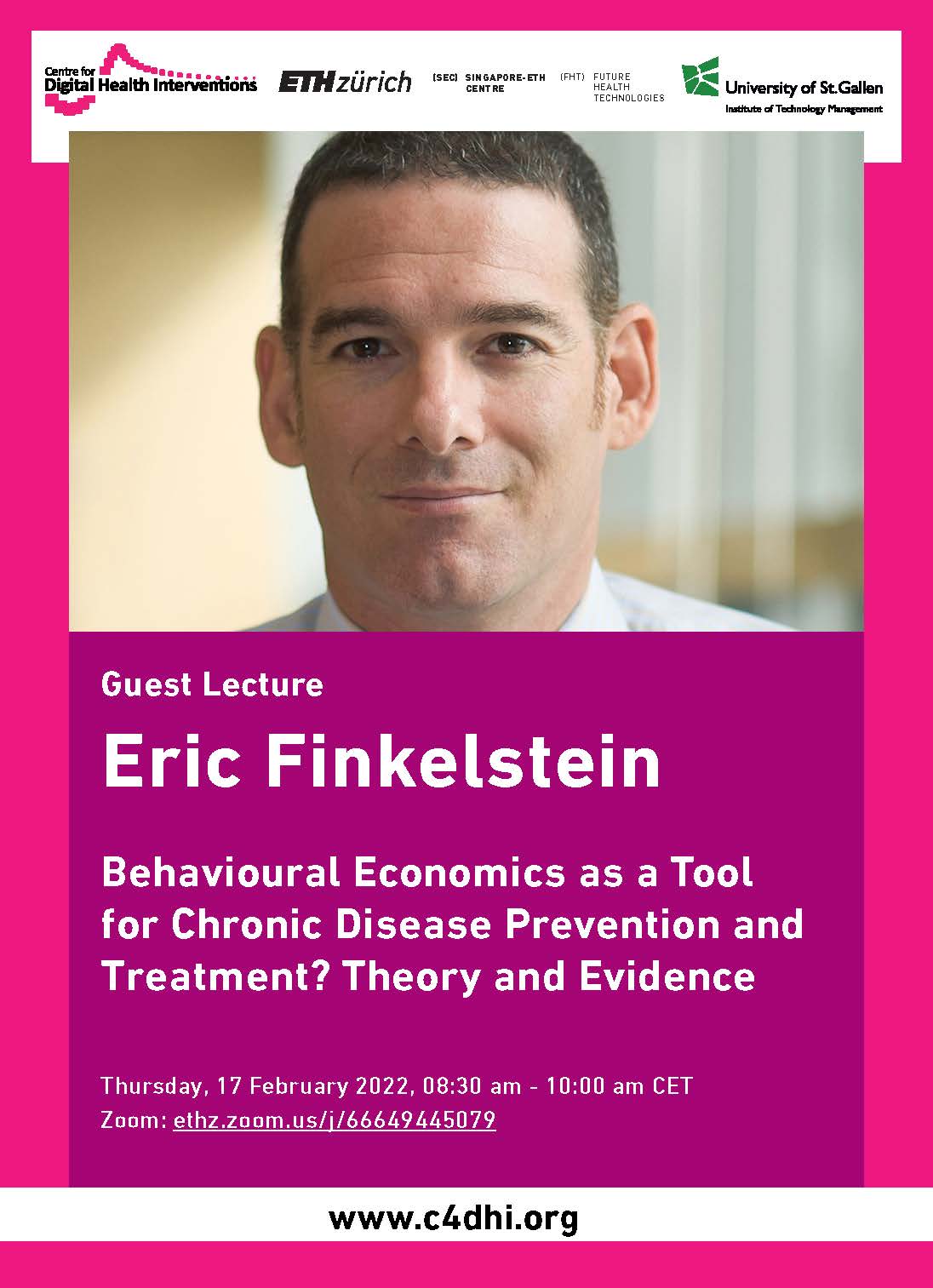Behavioural economics for chronic disease prevention and treatment
On 7 Feb, Prof. Eric Finkelstein spoke about classical economic theory, rationality and addressing biases in efforts to increase effectiveness of chronic disease prevention.
In this guest lecture, Dr Eric Finkelstein introduced classical economic theory, and then examined how individuals are expected to make decisions under the classical economic model, and the role of government assuming that model is correct. His presentation systematically discussed select failures of rationality, including time inconstant preferences, preference instability, loss aversion, and selection biases. Finally, he addressed how interventions can be developed to tackle those biases in efforts to increase effectiveness, with several examples from Prof. Finkelstein’s studies in Singapore.
You can view the video of his guest lecture here:

About the speaker
Dr. Finkelstein is Professor of Health Services and Systems Research at the Duke-NUS Medical School, Singapore and the Executive Director of the Lien Centre for Palliative Care. He is also the Principal Investigator of Health Data Governance and Value Creation in the Future Health Technologies of the Singapore-ETH Centre and holds appointments at NUS School of Public Health and Duke University Global Health Institute.
His research focuses on the economic causes and consequences of health behaviors, with a primary emphasis on the use of traditional and behavioral economic incentives toinfluence behaviors in ways to improve the public’s health. Recent research also focuses on studies to better understand the complicated decisions that revolve around end of life care. He has published nearly 300 manuscripts and 2 books in these areas, and also successfully commercialized an Obesity Cost Calculator for employers and insurers. Based on google scholar, he has an h-index of 67 and his publications have been cited over 95,000 times, including in the landmark Supreme Court decision upholding the U.S. Affordable Care Act (aka Obamacare). He was included in the list of the World’s Most Highly Cited Researchers in 2015, 2016 and 2017 by Thomson Reuters and Clarivate Analytics.
Organising Committee:
- Prof. Dr. Tobias Kowatsch
Assistant Professor for Digital Health, University of St.Gallen
Scientific Director, Centre for Digital Health Interventions, ETH Zurich & University of St.Gallen; Princpial Investigator*
- Prof. Dr. Elgar Fleisch
Professor of Information Management, Department of Management, Technology, and Economics, ETH Zurich
Professor of Technology Management, Institute of Technology Management, University of St.Gallen
Co-Chair, Centre for Digital Health Interventions, ETH Zurich & University of St.Gallen; Princpial Investigator*
- Prof. Dr. Florian von Wangenheim
Professor of Technology Marketing, Department of Management, Technology, and Economics, ETH Zurich
Co-Chair, Centre for Digital Health Interventions, ETH Zurich & University of St.Gallen; Princpial Investigator*
* Future Health Technologies programme, Campus for Research Excellence and Technological Enterprise (CREATE), Singapore-ETH Centre, Singapore